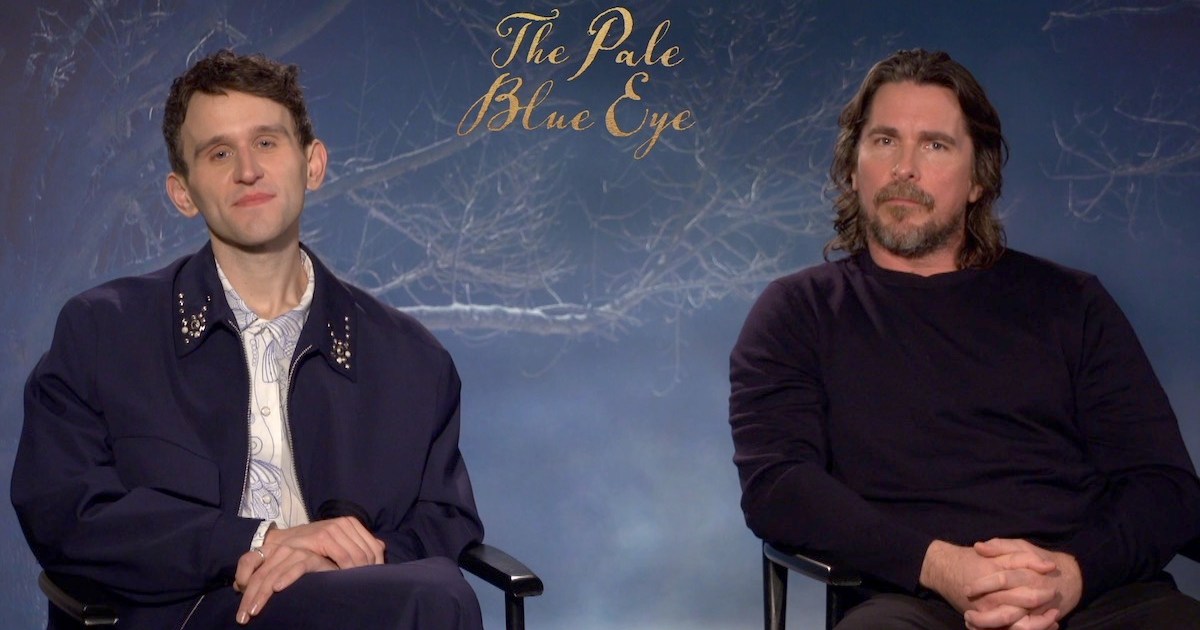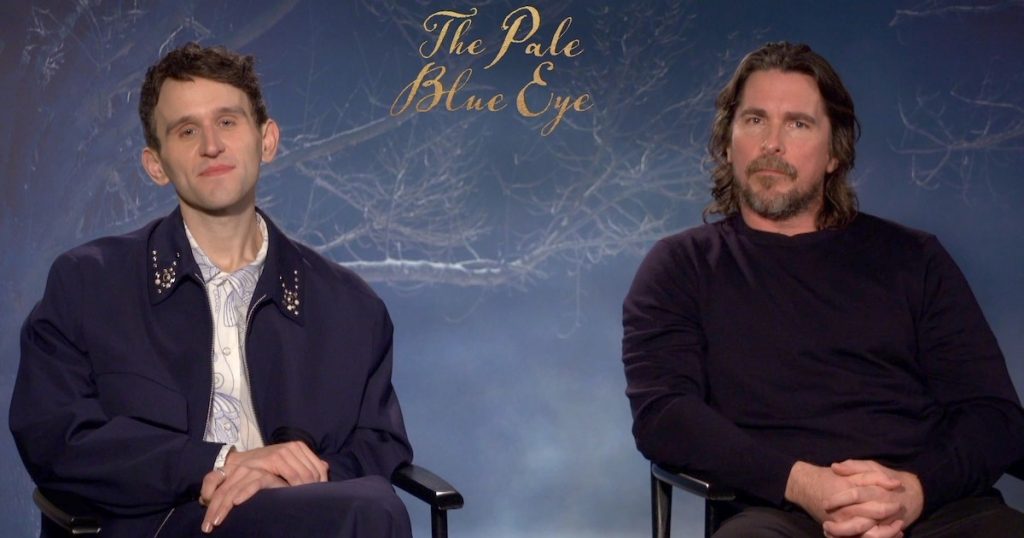
ComingSoon Editor-in-Chief Tyler Treese spoke with The Pale Blue Eye stars Christian Bale and Harry Melling about Netflix’s new gothic mystery film, which is now streaming. The duo discussed period pieces and filming that pivotal final scene.
“A world-weary detective is hired to investigate the murder of a West Point cadet,” reads the film’s synopsis. “Stymied by the cadets’ code of silence, he enlists one of their own to help unravel the case — a young man the world would come to know as Edgar Allan Poe.”
Tyler Treese: I thought The Pale Blue Eye was fantastic and Christian, not only do you have a great mystery in this movie, but it’s also taking place in 1830, which is such an interesting time. What did you find most intriguing about this combination of a mystery and a period piece?
Christian Bale: Well, first thank you very much. I’m so glad you enjoyed it and nice to talk to you too. It’s what I enjoyed so much about reading the script, imagining what Scott [Cooper, director] would come up with, and then seeing what Scott and Masa[nobu Takayanagi, cinematographer] did come up with and everyone involved, the production designers, everybody … it’s a beautifully atmospheric gothic murder mystery. The setting, the location, is just as much a character as Landor — who I play — or Poe — who Harry [Melling] plays. I’ve always loved that gothic era look and setting it in the 1830s … not everybody can manage that. Some faces aren’t suited to that period, some voices … there’s a language to it that –, even though the American accent really wasn’t formed properly at that time — it was a real hodgepodge. It’s something which is a unique talent to be able to achieve that. This man did it absolutely impeccably, and it was a real joy to be able to help Scott put all of this together and then see what a success the final result is.
Harry, you’re great as Edgar Allen Poe. What I love about the character is you give these grand, very poetic speeches. You throw the other characters off guard, even in the film you’re like, “Oh, I’m suffering. I’m very vertiginous,” and they’re like, “What?” How fun was it to play around with his speech and be very emphatic with the way he talks?
Harry Melling: It was so much fun. I think that was one of the things that really appealed to me about the character: he was such an amalgamation of contradictory things. He was this performer, the way he would perform these poems to the cadets or to Landor to try and impress them. But at the same time, there’s a vulnerability there. There’s a shyness there, in a strange sense. It was all there in Scott’s script. It was just a question of maybe joining the dots and filling in the gaps in terms of that beautiful range that was there in the script. So it was a joy, it really was. A real joy to play with that.
The last scene in the film, you and Harry are so vulnerable. It’s very genuine and raw. How was it filming that last scene in the movie?
Christian Bale: Obviously an absolutely crucial pivotal scene. Real pleasure to experiment with that scene with Harry. Bloody cold! We were filming, I think like we went through like three in the morning or something, wasn’t it?
Harry Melling: Yeah, it was.
Christian Bale: But that just adds to it, you know? I enjoyed that, actually. I enjoyed the fact that we filmed this in the dead of winter outside of Pittsburgh, and it was freezing. It helps add something to it, I believe.
Harry Melling: Yeah, I agree.
Christian Bale: It was an interesting one because there are choices to be made and we could have given Scott multiple choices, but actually Scott’s very, very definite. He knows what he’s looking for. For how complex that scene is — and it’s very complex [with] all the subtext and reading between the lines — it was actually very simple, the methods by which we achieved it.

